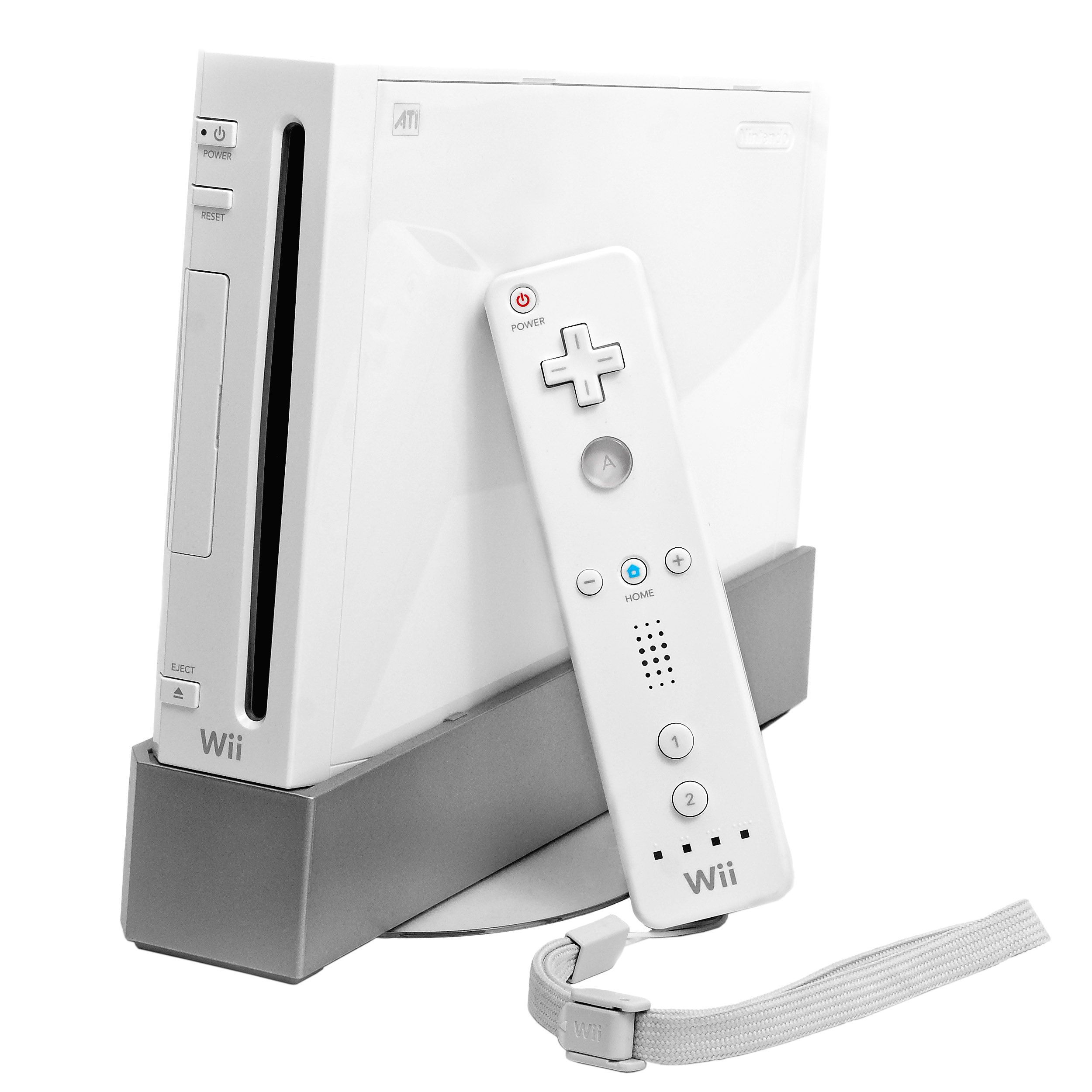|
Shaberu! DS Oryōri Navi
is a 2006 cooking simulation video game developed by indieszero and published by Nintendo for the Nintendo DS. It was released only in Japan. Brief information The software contains numerous Japanese recipes with step by step instructions, and the user can use the Nintendo DS's microphone for voice-recognition commands like turning pages. All the instructions are read out loud, while some instructions are video recordings showing how to do some tasks like chopping. It is possible to choose recipes based on a number of calories, the ingredients the user has and so forth. The simulator also keeps in memory what dishes the player has already made. It also features a timer. As a bonus, the Game & Watch game, ''Chef'', can also be played in this DS title. Reception ''Shaberu! DS Oryōri Navi'' received an Excellence Prize for Entertainment at the 2006 Japan Media Arts Festival. Sequels and spin-offs ''Shaberu! DS Oryōri Navi'' gave birth to numerous sequels. Nintendo developed ... [...More Info...] [...Related Items...] OR: [Wikipedia] [Google] [Baidu] |
Indieszero
is a Japanese video game developer headquartered in Musashino, Tokyo, Japan. Founded on April 21, 1997, it is a frequent collaborator with Nintendo, developing some of their smaller scale and more experimental titles. Overview The name is a portmanteau, indicating independent video games with a low budget and minimal connections to other developers, which is described as "almost zero". The philosophy of the company is to make games that are easy to understand and user-friendly. The company initially specialized in games for handheld game consoles, but eventually expanded to smartphones. It makes licensed trading-card games for popular franchises such as ''Legend of Mana'' and ''Final Fantasy''. The founder Masanobu Suzui commented that the company plans to "make new products that has never been created before". He regards the company as a game developer that "cherishes a creative viewpoint rather than state-of-the-art technology capabilities" and makes games that can be imm ... [...More Info...] [...Related Items...] OR: [Wikipedia] [Google] [Baidu] |
Koei
Koei Co., Ltd. was a Japanese video game publisher, developer, and distributor founded in 1978. The company is known for its historical simulation games based on the novel ''Romance of the Three Kingdoms'', as well as simulation games based on pseudo-historical events. The company found mainstream success in a series of loosely historical action games, the flagship titles of which are the '' Dynasty Warriors'' and '' Samurai Warriors'' series, also known as the ''Musō'' series. Koei also owned a division known as Ruby Party, which focuses on otome games. On April 1, 2009, Koei merged with Tecmo to create the Tecmo Koei Holdings holding company. After operating as subsidiaries of Tecmo Koei Holdings for exactly a year, Koei merged with Tecmo on April 1, 2010 and combined both companies as one under the name Tecmo Koei Games (with Koei as the actual surviving corporation). History Koei was established in July 1978 by (also known as ) and Keiko Erikawa. Yoichi was a stude ... [...More Info...] [...Related Items...] OR: [Wikipedia] [Google] [Baidu] |
Touch! Generations
is a brand created by Nintendo to denote games on the Nintendo DS and Wii that are intended to appeal to a broader audience (mainly adults and the elderly) than the traditional gamer. Nintendo originally introduced the brand in Japan in April 2005; it was subsequently introduced in North America and Europe in June 2006. Nintendo retired the brand with the launch of the Nintendo 3DS in 2011, six years after its introduction. Despite this, some games that were introduced under the brand continue to receive follow-up entries on the contemporary and future Nintendo consoles. The ''Touch! Generations'' brand was initially conceived in Japan as a response to the country's faster population aging rate compared to Western regions, with Nintendo seeking to attract non-traditional gamers to supplement their shrinking target market of hardcore gamers. Games The initial line-up of ''Touch! Generations'' games in Japan, launched between April and June 2005, included ''Electroplankton'', ... [...More Info...] [...Related Items...] OR: [Wikipedia] [Google] [Baidu] |
Single-player Video Games
A single-player video game is a video game where input from only one player is expected throughout the gameplay. Video games in general can feature several game modes, including single-player modes designed to be played by a single player in addition to multi-player modes. Most modern console games, PC games and arcade games are designed so that they can be played by a single player; although many of these games have modes that allow two or more players to play (not necessarily simultaneously), very few actually require more than one player for the game to be played. The '' Unreal Tournament'' series is one example of such. History The earliest video games, such as '' Tennis for Two'' (1958), '' Spacewar!'' (1962), and '' Pong'' (1972), were symmetrical games designed to be played by two players. Single-player games gained popularity only after this, with early titles such as '' Speed Race'' (1974) and '' Space Invaders'' (1978). The reason for this, according to Raph Ko ... [...More Info...] [...Related Items...] OR: [Wikipedia] [Google] [Baidu] |
Nintendo Entertainment Analysis & Development Games
is a Japanese multinational video game company headquartered in Kyoto. It develops, publishes, and releases both video games and video game consoles. The history of Nintendo began when craftsman Fusajiro Yamauchi founded the company to produce handmade ''hanafuda'' playing cards. After venturing into various lines of business and becoming a public company, Nintendo began producing toys in the 1960s, and later video games. Nintendo developed its first arcade games in the 1970s, and distributed its first system, the Color TV-Game in 1977. The company became internationally dominant in the 1980s after the arcade release of ''Donkey Kong'' (1981) and the Nintendo Entertainment System, which launched outside of Japan alongside ''Super Mario Bros.'' in 1985. Since then, Nintendo has produced some of the most successful consoles in the video game industry, including the Game Boy (1989), the Super Nintendo Entertainment System (1991), the Nintendo DS (2004), the Wii (2006), and t ... [...More Info...] [...Related Items...] OR: [Wikipedia] [Google] [Baidu] |
Indieszero Games
is a Japanese video game developer headquartered in Musashino, Tokyo, Japan. Founded on April 21, 1997, it is a frequent collaborator with Nintendo, developing some of their smaller scale and more experimental titles. Overview The name is a portmanteau, indicating independent video games with a low budget and minimal connections to other developers, which is described as "almost zero". The philosophy of the company is to make games that are easy to understand and user-friendly. The company initially specialized in games for handheld game consoles, but eventually expanded to smartphones. It makes licensed trading-card games for popular franchises such as '' Legend of Mana'' and ''Final Fantasy''. The founder Masanobu Suzui commented that the company plans to "make new products that has never been created before". He regards the company as a game developer that "cherishes a creative viewpoint rather than state-of-the-art technology capabilities" and makes games that can be i ... [...More Info...] [...Related Items...] OR: [Wikipedia] [Google] [Baidu] |
Cooking Video Games
Video games that simulate cooking Cooking, also known as cookery or professionally as the culinary arts, is the art, science and craft of using heat to make food more palatable, digestible, nutritious, or Food safety, safe. Cooking techniques and ingredients vary widely, from ... food or preparing dishes as an integral part of their gameplay. Video games Simulation video games Video games about food and drink ... [...More Info...] [...Related Items...] OR: [Wikipedia] [Google] [Baidu] |
Cookbooks
A cookbook or cookery book is a kitchen reference containing recipes. Cookbooks may be general, or may specialize in a particular cuisine or category of food. Recipes in cookbooks are organized in various ways: by course (appetizer, first course, main course, dessert), by main ingredient, by cooking technique, alphabetically, by region or country, and so on. They may include illustrations of finished dishes and preparation steps; discussions of cooking techniques, advice on kitchen equipment, ingredients, tips, and substitutions; historical and cultural notes; and so on. Cookbooks may be written by individual authors, who may be chefs, cooking teachers, or other food writers; they may be written by collectives; or they may be anonymous. They may be addressed to home cooks, to professional restaurant cooks, to institutional cooks, or to more specialized audiences. Some cookbooks are didactic, with detailed recipes addressed to beginners or people learning to cook particular dis ... [...More Info...] [...Related Items...] OR: [Wikipedia] [Google] [Baidu] |
2006 Video Games
2006 saw the release of many sequels and prequels in video games, prominently including '' Grand Theft Auto: Vice City Stories'', ''Madden NFL 07'', '' NBA Live 07'', '' NBA 2K7'', '' WWE Smackdown vs. Raw 2007'', '' Tony Hawk's Project 8'', '' New Super Mario Bros.'', ''Sonic the Hedgehog'', and '' The Legend of Zelda: Twilight Princess'', alongside many prominent new releases including '' Bully'', '' Company of Heroes'', '' Dead Rising'', ''Gears of War'', '' Just Cause'', '' Lost Planet: Extreme Condition'', ''Ōkami'', ''Prey'', '' Resistance: Fall of Man'', ''Saints Row'', and '' Thrillville''. Two new home consoles were released during the year: Nintendo's Wii and Sony's PlayStation 3. The year's best-selling game console was the Nintendo DS, while the year's best-selling video game was ''New Super Mario Bros.'' for the DS. The year's most critically acclaimed title was ''The Legend of Zelda: Twilight Princess'' for Nintendo's GameCube and Wii consoles. Major awards ... [...More Info...] [...Related Items...] OR: [Wikipedia] [Google] [Baidu] |



